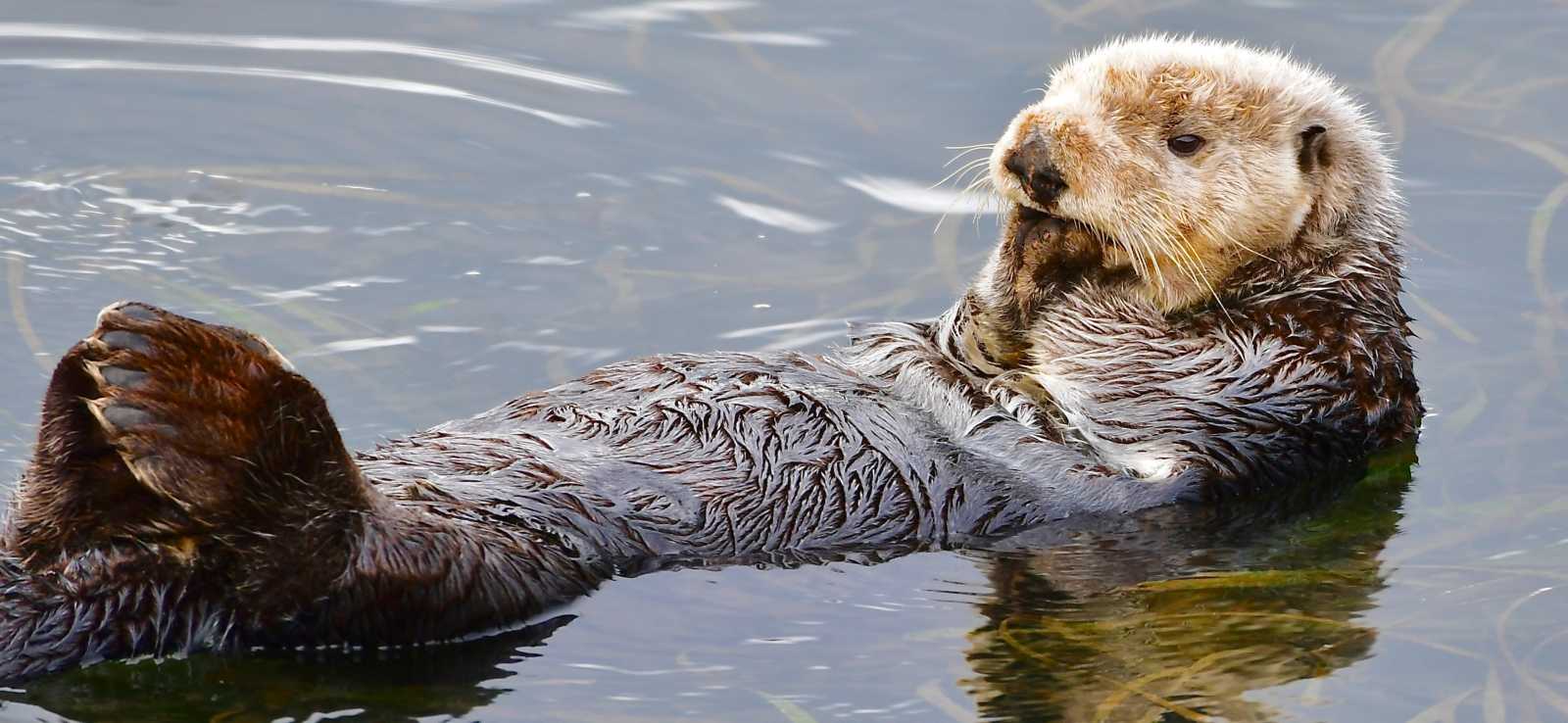Adult sea otters typically weigh between 14 to 45 kg (30 to 100 pounds). The smallest marine mammal, sea otters, display noticeable weight differences between males and females.
Discover the enchanting world of sea otters, marine mammals known for their playful nature and exceptional role in their ecosystem. Sea otters possess a thick fur coat, the densest among animals, which aids in insulation but contributes nothing to their buoyancy.
Remarkably adapted to a life in water, they spend the majority of their time floating on their backs, often spotted cracking open shellfish with rocks—a testament to their ingenuity. Their weight plays a crucial part in their survival, influencing their ability to maintain body heat and energy levels. Conservation efforts continue to protect these charismatic creatures, as their presence greatly benefits the coastal marine environment by controlling sea urchin populations, thus fostering kelp forest health. Sea otters charm observers with their endearing habits and play a pivotal role in marine biodiversity, making their conservation a matter of significant ecological importance.
Unveiling Sea Otter Weights
Understanding the weight of sea otters is crucial not only for researchers but also for conservation efforts. By tracking weight patterns, scientists can gain insights into the health and habitats of these marine mammals. Average weight range for adult sea otters varies, generally falling between 14 to 45 kilograms (30 to 99 pounds). This variance is due to several factors.
Understanding the relationship between sea otter weight and their environment aids in assessing the state of their ecosystem. Sea otters with access to abundant food and fewer stressors, such as predators or human disturbances, may weigh more. Meanwhile, otters from regions with limited food supplies or high stress may weigh less. Seasonal changes can also affect weight, as otters may build up fat reserves to prepare for colder months.
| Factor | Influence on Weight |
|---|---|
| Food Availability | Higher weight with abundant food |
| Predators & Human Activity | Lower weight due to stress and disturbances |
| Seasonal Changes | Increased weight in preparation for cold |
Weighing The Facts
Understanding the size and weight of sea otters provides insightful context on their place in the marine hierarchy. Fully-grown adult otters are noticeably lighter than seals and walruses, typically tipping the scales between 14 to 45 kg (30 to 99 lbs). This weight range places them among the smaller marine mammals, with many others displaying significantly greater hefts.
As for newborn sea otter pups, their weight at birth is astonishingly low, given their future adult size, usually around 1.4 to 2.3 kg (3 to 5 lbs). This is just a fraction of their eventual adult mass. Concerning seasonal weight fluctuations, sea otters display a remarkable adaptability. They tend to put on weight during the colder months, building up insulation in the form of body fat to maintain their core temperature against the frigid ocean waters.
Clues To Sea Otters’ Size
Sea otters‘ diets are predominantly composed of marine invertebrates, such as sea urchins, clams, crabs, and snails. The caloric intake and nutritional value of these foods play a crucial role in determining an otter’s weight. A diet rich in high-energy prey can lead to a heavier and often healthier otter.
There are noticeable differences in weight based on the geographic locations where sea otters are found. For instance, sea otters residing along the coast of California may exhibit different average weights compared to those in the cooler waters of Alaska, as the environmental conditions and available prey types influence their diet and, subsequently, their overall mass.
Monitoring the weight of sea otters serves as a significant health gauge. Variations in weight can be indicators of both individual and population health. Sudden weight loss might signify illness or habitat disturbances, whereas obesity could indicate an overabundance of prey or lack of predation. Thus, the weight of sea otters is much more than just a number; it is an insightful marker of their well-being and the state of their environment.
Assessing Sea Otter Populations
Sea otters, a vital component of marine ecosystems, vary in weight depending on several factors, including environmental conditions. Researchers deploy multiple methods to assess the weight of these mammals: live-capture weigh-ins, post-mortem examinations, and predictive modeling based on physical dimensions. We see that otters residing in nutrient-rich areas tend to have greater body mass compared to those in habitats with limited food resources.
Amidst conservation efforts, understanding the weight of sea otters serves as an indicator of health and well-being. Rehabilitation programs and protective measures focus on the recovery of sea otter populations, where maintaining a healthy weight range is a critical aspect of their success. Consequently, ongoing efforts not only monitor these marine mammals but also work towards enhancing their habitats to support robust size and weight metrics indicative of thriving individuals.

Credit: www.seattleaquarium.org
Frequently Asked Questions Of How Much Do Sea Otters Weigh
What Is The Average Weight Of Sea Otters?
Sea otters typically weigh between 14 and 45 kg (31-99 lbs). Adult males are heavier, averaging around 22 to 45 kg, while females are lighter, around 14 to 33 kg. Their weight can fluctuate based on geographic location and diet.
How Much Do Baby Sea Otters Weigh At Birth?
At birth, baby sea otters, also known as pups, weigh approximately 1. 4 to 2. 3 kg (3-5 lbs). Pups are born with a natal coat that helps them float on water, which is essential for their survival in their aquatic habitat.
Can Sea Otters’ Weight Affect Their Survival?
Yes, a sea otter’s weight is crucial for survival, as it affects their insulation and buoyancy. A healthy weight helps maintain their thick fur coat, which is vital for warmth in cold waters. Adequate fat reserves are also essential for energy and overall health.
Do Sea Otters Gain Weight Seasonally?
Sea otters can gain weight seasonally, typically in cooler months. They have high metabolisms and require ample food – up to 25% of their body weight in a day – to maintain their energy level and internal body heat.
Conclusion
Understanding the weight of sea otters is crucial for their conservation. These marine mammals vary from 14 to 45 kg, reflecting their diverse habitats and lifestyles. Remember, a healthy otter population often indicates a thriving ecosystem. Let’s preserve their natural environment for these adorable creatures to flourish!

